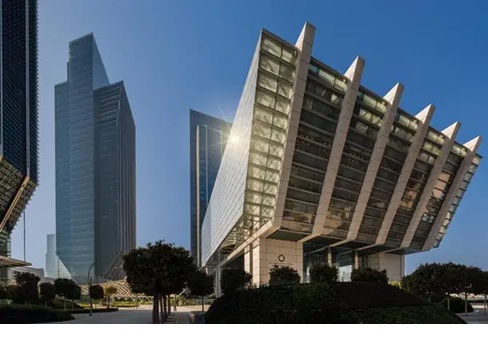peaq a global computer with borderless, decentralized, digital infrastructure for real-world apps. has partnered with Pulsar Group, an advisory firm in Abu Dhabi to launch a Machine Economy Free Zone (MEFZ), a dedicated sandbox environment for the Machine Economy in the UAE which The MEFZ will also include the world’s first pilot of “Universal Basic Ownership (UBO). To support the free zone, peaq is setting up its official HQ in the UAE to support the Machine Economy Free Zone on the ground
According to the peaq post, all around us, machines are already doing the work, driving, farming, scanning, delivering, answering our prompts. They’re creating real-world value, every second of every day. But turning the rise of the robots into a human-centric, decentralized economy — one where people can co-own, govern, and earn from the infrastructure that runs the world takes more than just code. It takes regulation, incentives, and physical and digital spaces to test and build.
The Machine Economy is a society in which humans and machines co-exist, co-create value, and thrive together in the Age of Abundance. It’s a human-centric economic paradigm where machines provide goods and services, earn income, and interact directly with people, businesses, and each other. Powered by AI and running on Web3, these machines can operate both autonomously and independently, generate real-world value, and share that value with the communities they serve.
The Machine Economy Free Zone sandbox will combine regulation, machine and infrastructure deployment, research, and investment in one place. A space for founders and policymakers to test, deploy, and scale new ideas for how humans and machines can build a future that works for all humans – and one day, for conscious machines too.
“We’re honored to be part of peaq’s transformative journey. peaq is redefining what’s possible for the future of the Machine Economy. By boldly bridging the physical and digital worlds through a decentralized, scalable, and sustainable Layer-1 blockchain, peaq is laying the foundation for a new era of real-world connectivity and autonomy. This is more than technology — it’s a movement, and we’re proud to help shape what comes next.” said Alyazi Al Khattal, CEO of Pulsar.
Machine Economy Free Zone sandbox will focus on four key pillars
Regulation: As part of the MEFZ, peaq is working on the development and testing of a range of regulatory initiatives and sandboxes, such as compliant tokenization and investment into autonomous machines and robots.
Deployment: peaq is working with Emirati partners to set up physical and virtual sandboxes where founders can experiment with new business models and deploy apps, devices and technologies aimed at powering more advanced smart cities.
Investment: peaq is connecting top apps (DePINs) on peaq with the most visionary investment bodies and institutional partners in the region, enabling them to scale and deploy at lightning speed.
Innovation Hub: peaq is establishing a regional innovation hub focused on supporting DePIN (Decentralized Physical Infrastructure Network) apps in research and development, deployment, and connection with organizations interested in the value these apps provide.
Among the first initiatives to be tested in the MEFZ is a framework for Machine Tokenization. This framework aims to make it easy for anyone to invest in robots and machines, from autonomous vehicles to vertical farms. It’s a key piece of Machine DeFi, peaq’s vision for a decentralized financial system where people can co-own and earn from real-world machines as they operate and generate value.
The MEFZ will also include the world’s first pilot of “Universal Basic Ownership (UBO)”. UBO explores how machine-generated income can be distributed directly to the communities affected by automation. No middlemen, no red tape just machines generating value, and people receiving a share of it.
Both of these initiatives will be tested, refined, and scaled in the Machine Economy Free Zone.
“The Machine Economy is no longer a far-fetched dream, it is a reality quickly shaping up before our very eyes. peaq makes this transformation work for everyone and the Emirates, as one of the most innovative nations in the world, is the perfect place to pilot this vision, setting a template and example for the rest of the world”, noted Till Wendler, co-founder of peaq


















